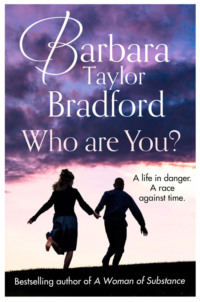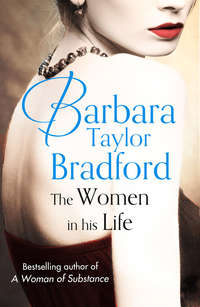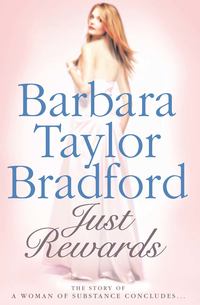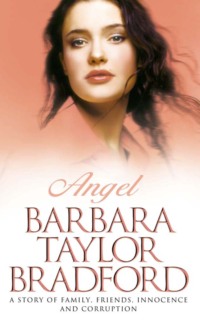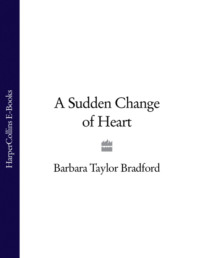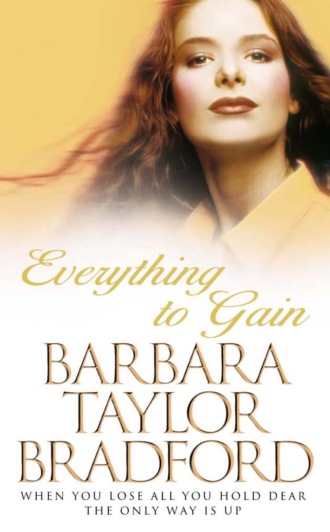
Полная версия
Everything to Gain
Andrew Keswick seemed to agree.
If his compliments about my work went to my head, then he himself went straight to my heart. Of course, I was very young then, and even though I was a graduate of Radcliffe I think I was most probably rather naive for my educational background, age and upbringing. I was a slow starter, I suppose.
In any event, Andrew captivated me entirely. Despite his brilliance and his standing on Madison Avenue, I soon came to realize that he was not in the least bit egotistical. Quite the opposite, in fact. He was unassuming, even modest for a man of his considerable talents; also, he had a great sense of fun, and a dry humour which was often rather self-deprecating.
To me he was a dashing and sophisticated figure, and his very Englishness, plus his mellifluous, cultivated voice, set him apart. Medium of height and build, he had pleasant, clean-cut looks, dark brown hair and candid eyes set wide apart. In fact, his eyes were his most arresting feature, of the brightest blue and thickly lashed. I don’t think I’ve ever seen eyes so vividly blue in my life before, or ever again, except in Clarissa and Jamie, our six-year-old twins, who have inherited them from their father.
Every young woman in the advertising agency found him immensely attractive, but it was I in whom he began to take an interest and whom he eventually singled out for special attention. We began to go out together, and at once I discovered that I was completely at ease with him; I felt comfortable, very natural in his presence. It was as though I had known him for ever, yet there was so much that intrigued me about him, and his life before we met, so much to learn about him.
Andrew and I had been seeing each other for only two months when he whisked me off to London for a long weekend to meet his mother. Diana Keswick and I became friends instantly, actually within the first hour of knowing each other. You could say we fell in love, and that is the way it has been between us ever since.
To some people, the name mother-in-law inevitably conjures up the image of an enemy, a woman who is overly possessive of her son and in competition with his wife for his attention and affection. But not Diana. She was lovely to me from the moment we met, a female Andrew. Or rather, I should say, Andrew is a male version of his mother. In a variety of different ways she’s proved to be loyal and devoted to me, and she is a woman I truly love, respect and admire. Many qualities make her unique in my eyes, not the least of which is her warm and understanding heart.
That weekend in London, which was actually my first trip to England, remains vivid and alive in my mind to this very day. We had only been there for twenty-four hours when Andrew asked me to marry him. ‘I love you very much,’ he’d said, and taking hold of me he had pulled me close and continued in that beautiful voice of his, ‘I can’t imagine my life without you, Mal. Say you’ll marry me, that you’ll spend the rest of your life with me.’
Naturally I’d said I would. I told him that I loved him as much as he loved me, and we celebrated our engagement by taking his mother to dinner at Claridge’s on Sunday night, before flying back to New York on Monday morning.
On the return journey, I kept glancing surreptitiously at the third finger of my left hand, admiring the antique sapphire ring gleaming on it. Andrew had given me the ring just before we had gone out to our celebration dinner, explaining that it had belonged first to his grandmother and then to Diana. ‘My mother wants you to have it now,’ he’d said, ‘and so do I. You’ll be the third Keswick wife to wear it, Mal.’ He had smiled in that special, very loving way of his as he slipped it on my finger. And in the next few days, every time I looked at it, the old prayer-book words sprang into my mind: With this ring I thee wed, with my body I thee worship.
Twelve weeks after our first dinner date, Andrew Keswick and I were married at St Bartholomew’s Church on Park Avenue. The only person who was not entirely overjoyed by this sudden union was my mother. Liking Andrew very much though she did, and approving of him, she was, nonetheless, filled with disappointment about the extreme hastiness of the nuptials. ‘Everyone is going to think it’s a shotgun wedding,’ she kept muttering, throwing me piercing glances as she had rushed to have the invitations engraved and hurriedly planned a reception to be held at the Pierre Hotel on Fifth Avenue.
My glaring eyes and stern, obstinate mouth must have warned her off, warned her not to ask if I was pregnant – which I wasn’t, by the way. But my mother deems me impractical, has for years characterized me as an artistic dreamer, a lover of poetry, books, music and painting, with my head forever in the clouds.
Some of what she says is true. Yet I am also much more practical than she could ever imagine; my feet have always been firmly planted on the ground, despite what she thinks. The reason for the quickness of the marriage was simply because we wanted to be together, to live together, and we saw no reason to wait, to drag out a long engagement.
Not all brides enjoy their weddings. I loved mine. I was euphoric throughout the church ceremony and the reception. After all, it was the most important day of my life; but, furthermore, I had also managed to outwit my mother and get my own way in everything. No mean feat, I might add, when it came to social situations.
By my own choice, and with Andrew’s acquiescence, the affair was tiny. Both of our mothers were present, of course, as well as a few relatives and friends of Andrew’s and mine. Andrew’s father was dead. Mine wasn’t, although my mother behaved as though he were, inasmuch as he had left her some years before and gone to live in the Middle East. In consequence of this, she thought of him as being non-existent.
But exist he did for me, and very much so. We corresponded on a regular basis and we spent as much time together as we could, whenever he came to the States. And he flew to New York to give me, his only daughter, away.
Much to my astonishment, my mother was pleased he had made this paternal gesture. And so was I, although I had expected nothing less. The thought of getting married without him by my side as I walked down the aisle had appalled me. Once Andrew and I became engaged, I had called him in Saudi Arabia, where he was at the time, to tell him my good news. He had been overjoyed for me.
Even though my mother barely spoke to my father the entire time he was in Manhattan, she at least behaved in a civilized manner when they were together in public. But, not unnaturally, he departed as soon as it was decent to do so, once the reception at the Pierre was drawing to a close. My father, an archaeologist, seems to prefer the past to the present, so he had rushed back to his current dig.
He had fled my mother permanently some years before, when I was eighteen to be exact. I had gone off to Cambridge, Massachusetts, and my new life at Radcliffe College, and it was as though there was no longer a good reason for him to stay in the relationship, which had become extremely difficult for him to sustain. That they never divorced I always found odd; it was something of a mystery to me, given the circumstances.
We left the wedding reception together, he and I and my bridegroom, and rode out to Kennedy Airport in one of the grand stretch limousines my mother had hired for the wedding.
Just before we headed in different directions to catch our planes to different parts of the world, he hugged me tightly, and, as we said our goodbyes, he whispered against my hair, ‘I’m glad you did it your way, Mal, had the kind of wedding you wanted, not the big, splashy bash your mother would have preferred. You’re a maverick like me. But then that’s not half bad, is it? Always be yourself, Mal, always be true to yourself.’
It had pleased me that he’d said that, about being a maverick like he was. We had been very close since my childhood, an emotional fact that I suspect has been a constant irritant to my mother. I don’t believe she has ever understood my father, not ever in their entire life together. Sometimes I’ve wondered why they married in the first place; they are such opposites, come from worlds that are completely different. My father is from an intellectual family of academics and writers, my mother from a family of affluent real-estate developers of some social standing, and they have never shared the same interests.
Yet something must have attracted Edward Jordan to Jessica Sloane and vice versa, and they must have been in love, or thought they were, for marry they did in 1953. They brought me into the world in May 1955, and they stayed together until 1973, struggling through twenty years of bickering and quarrelling, punctuated by stony silences that lasted for months on end. And there were long absences on the part of my father, who was always off to the Middle East or South America, seeking the remains of ancient civilizations lost in the mists of antiquity.
My father aside, my mother has never understood me, either. She is not remotely conscious of what I’m about, what makes me tick. But then my mother, charming and sweet though she can be, has not been blessed with very much insight into people.
I love my mother and I know she loves me. But for years now, ever since I was a teenager, I’ve found her rather trying to be with. Unquestionably, there is a certain shallowness to her, and this is something which dismays me. She is forever concerned with her social standing, her social life, and her appearance. Not much else interests her, really. Her days revolve around her dressmaker, hair and manicure appointments, and the luncheons, dinners and cocktail parties to which she has been invited.
To me it seems such an empty, meaningless life for any woman to lead, especially in this day and age. I am more like my father, inasmuch as I’m somewhat introspective and serious-minded; I’m concerned, just as he is, about this planet we inhabit, and all that is happening on it and to it.
In many ways, the man I married greatly resembles my father in character. Like Daddy, Andrew cares, and he is honourable, strong, straightforward and dependable. True blue is the way I categorize them both.
Andrew is my first love, my only love. There will never be anyone else for me. We will be with each other for the rest of our lives, he and I. This is the one great constant in my life, one which sustains me. Our children will grow up, leave us to strike out on their own as adults, have families of their own one day. But Andrew and I will go on into our twilight years together, and this knowledge comforts me.
Suddenly, I felt the warmth of the sun on my face as its rays came filtering through the branches of the big apple tree, and I pushed myself up from the wrought-iron seat where I sat. Realizing that the day must now begin, I walked back to the house.
It was Friday the first of July, and I had no time to waste today. I had planned a special weekend for Andrew, Jamie and Lissa, and my mother-in-law who was visiting us from England, as she did every year. Monday the fourth of July was to be our big summer celebration.
Two
As I approached the house I could not help thinking how beautiful it looked this morning, gleaming white in the bright sunlight set against a backdrop of mixed green foliage under a sky of periwinkle blue.
Andrew and I fell in love with Indian Meadows the minute we set eyes on it, although it wasn’t called Indian Meadows then. It didn’t have a name at all.
Once we had bought it, the first thing I did was to christen it with a bottle of good French champagne, much to Andrew’s amusement. Jamie and Lissa, on the other hand, were baffled by my actions, not understanding at all until I explained about ships and how they were christened in exactly the same way. ‘And so why not a house,’ I had said, and they had laughed gleefully, tickled by the whole idea of it. So much so, they had wanted their own bottle of Veuve Clicquot to break against the drainpipe, as I had done, but Andrew put a stop to that immediately. ‘One bottle of good champagne going down the drain is enough for one day,’ he laughed. I’d rolled my eyes to the ceiling, but couldn’t resist flashing a smile at him as I appeased the twins, promising them some cooking wine to do their own ‘house christening’ the following day.
As for the name, I culled it from local lore, which had it that centuries ago Indians had lived in the meadows below the hill upon which our house was built. And frequently, when I am standing on the ridge looking down at the meadows, I half close my eyes and, squinting against the light, I can picture Pequot squaws, their braves and their children sitting outside their wigwams, with horses tethered nearby and pots cooking over open fires. I can almost smell the pungent wood smoke, hear their voices and laughter, the neighing of the horses, the beat of their drums.
Highly imaginative of me, perhaps, but it is a potent image and one which continues to persist. Also, it pleases me greatly to think that I and my family live on land once favoured by native Americans centuries ago, who no doubt appreciated its astonishing beauty then as we do today.
We found the house quite by accident. No, that’s not exactly true, when I look back. The house found us. That is what I believe, anyway, and I don’t suppose I will ever change my mind. It reached out to us like a living thing, and when, for the first time, we stepped over the threshold into that lovely, low-ceilinged entrance hall I knew at once that it would be ours. It was as though it had been waiting for us to make it whole, waiting for us to make it happy again. And this we have done. Everyone who visits us is struck by the feeling of tranquillity and happiness, the warm and welcoming atmosphere that pervades it, and which envelops everyone the moment they come through the front door.
But in June of 1986 I had no idea that we would finally find the house of our dreams, or any house for that matter. We had looked for such a long time for a weekend retreat in the country, without success. And so we had almost given up hope of ever finding a suitable place to escape to from New York. The houses we had viewed in various parts of Connecticut had been too small and poky, or too large, too grand, and far too expensive. Or so threadbare they would have cost a fortune to make habitable.
That particular weekend, Andrew and I were staying with friends in Sharon, an area we did not know very well. We had taken Jamie and Lissa to Mudge Pond, the town beach, for a picnic lunch on the grassy bank that ran in front of the narrow strip of sand and vast body of calm, silver-streaked water beyond.
Later, as we set out to return to Sharon, we inadvertently took a wrong turning and, completely lost, drove endlessly around the hills above the pond. As we circled the countryside, trying to get back to the main highway, we unexpectedly found ourselves at a dead end in front of a house.
By mistake, we had gone up a wide, winding driveway, believing it to be a side road which would lead us back, hopefully, to Route 41.
Startled, Andrew had brought the car to a standstill. Intrigued by the house, we had stared at it and then at each other. And in unison we had exclaimed about its charm, something which was evident despite the sorry signs of neglect and disuse which surrounded it.
Made of white clapboard, it had graceful, fluid lines and was rather picturesque, rambling along the way it did on top of the hill, set in front of a copse of dark green pines and very old, gnarled maples with great spreading branches. It was one of those classic colonial houses for which Connecticut is renowned, and it had a feeling of such mellowness about it that it truly captured our attention.
‘What a shame nobody cares enough about this lovely old place to look after it properly, to give it a fresh coat of paint,’ Andrew had murmured, and, opening the door, he got out of the car. Instructing Jenny, our English au pair, to stay inside with the children, I had quickly followed my husband.
In a way I cannot explain, certainly not in any rational sense, the house seemed to beckon us, pull us towards it, and we had found ourselves hurrying over to the front door, noticing the peeling paint and tarnished brass knocker as we did. Andrew had banged the latter, whilst I peeked in through one of the grimy windows.
Murky though the light was inside, I managed to make out pieces of furniture draped in dustcloths and walls covered with faded, rose-patterned wallpaper. There were no signs of life and naturally no one answered Andrew’s insistent knocking. ‘It looks totally deserted, Mal, as if it hasn’t been lived in for years,’ he said, and after a moment, wondered out loud: ‘Could it be for sale, do you think?’
As he put his arm around my shoulders and walked me back to the car, I found myself saying, ‘I hope it is,’ and I still remember the way my heart had missed a beat at the thought that it might very well be on the market.
A few seconds later, driving away down the winding road, I suddenly spotted the broken wooden sign, old and weatherworn and fallen over in the long grass. When I pointed it out to Andrew, he brought the car to a standstill instantly. I opened the door, leaped out and sprinted across to the grass verge to look at it.
Even before I reached the dilapidated sign, I knew, deep within myself, that it would say that the house was for sale. And I was right.
During the next few hours we had managed to find our way back to Sharon, hunted out the real-estate broker’s office, talked to her at length, then returned to the old white house on the hill. She had led the way out of town, we had followed her, and we had been almost too excited to speak to each other, hardly daring to hope that the house would be right for us.
‘It doesn’t have a name,’ Kathy Sands, the real-estate broker had remarked, as she had fitted the key in the lock and opened the front door. ‘It’s always been known as the Vane place. Well, for about seventy years anyway.’
All of us trooped inside.
Jamie and Lissa were carefully shepherded by Jenny; I carried Trixy, our little Bichon Frise, listening to Kathy’s commentary as we followed her along the gallery-like entrance, which, Andrew pointed out, was somewhat Elizabethan in style. ‘Reminds me of Tudor interior architecture,’ he had explained, glancing around admiringly as he spoke. ‘In fact, it’s rather like the gallery at Parham,’ he added. ‘You remember Parham, don’t you, Mal? That lovely old Tudor house in Sussex.’
I had nodded in response, smiling at him, sharing the remembrance of the wonderful two weeks’ holiday we had had in England the year before. It had been like a second honeymoon for us. After a week with Diana in Yorkshire we had left the twins with her and gone off alone together for a few days.
Kathy Sands was a local woman born and bred, a fund of information about everything, including the previous owners – and over the last couple of centuries at that. According to her, only three families had owned the house from the time it had been built in 1790 to the present. These were the Dodds, the Hobsons and the Vanes. Old Mrs Vane, who was formerly a Hobson, had been born in the house and had continued to live there after her marriage to Samuel Vane. Eighty-eight, widowed, and growing rather frail, she had finally had to give up her independence, had gone to live with her daughter in Sharon. And so she had put the house, which had been her home for an entire lifetime, on the market two years earlier.
‘Why hasn’t it been sold? Is there something wrong with it?’ I had asked worriedly, giving the broker one of those penetrating looks which I had learned so perfectly from my mother years before.
‘No, there’s nothing wrong with it,’ Kathy Sands had replied. ‘Nothing at all. It’s just a bit off the beaten track, too far from Manhattan for most people who are looking for a weekend place. And it is rather big.’
It did not take Andrew and me long to understand why the real-estate broker had said the house was big: it was huge. And yet despite its size, it had a compactness about it, and it was not as sprawling and spread out as it appeared to be from the outside. Although it did have more rooms than we really needed, it was a neat and tidy house, to my way of thinking, and there was a natural flow to the layout. Downstairs the rooms opened off the long gallery, upstairs from a central landing. Because its core was very old, it had a genuine quaintness to it, with floors that dipped, ceilings that sloped, beams that were lopsided. Some of the windows had panes made of antique blown glass dating back to the previous century, and there were ten fireplaces, eight of which were in working order, Kathy had told us that afternoon.
All in all, the house was something of a find and Andrew and I had known it. Never mind that it was farther from New York than we had ever planned to have a weekend home. Somehow we would manage the drive, we had reassured each other that afternoon. Andrew and I had fallen in love with the place and we wanted it, and by the end of the summer it was ours, as was a rather large mortgage.
We spent the rest of 1986 sprucing up our new possession, camping out in it as we did, and loving every moment. For the remainder of that summer and autumn our children became true country sprites, practically living outdoors, and Trixy revelled in chasing squirrels, rabbits and birds. As for Andrew and I, we felt a great release escaping the tensions of the city and he the many pressures of his high-powered job.
Finally, in the spring of 1987, we were able to move in properly, and then we set out taming the grounds and planting the various gardens around the house. This was some task in itself, and as challenging as getting the house in order. Andrew and I enjoyed working with Anna, the gardener we had found, and Andrew discovered he had green fingers, something he had never known. Everything seemed to sprout under his hands.
It did not take either of us long to understand how much we looked forward to leaving the city, and as the weeks and months passed we became more and more enamoured of this breathtaking corner of Connecticut.
Now, as I walked through the sunroom and into the long gallery, I paused for a moment, stood admiring the gentle serenity of our home.
Sunlight was spilling into the hall from the various rooms, and in the liquid rafts of brilliant light thousands of dust motes rose up, trembling in the warm July air. Suddenly, a butterfly, delicately wrought, jewel-tinted, floated past me to hover over a bowl of cut flowers on the table in the middle of the gallery.
I caught my breath, wishing I had a paintbrush and canvas at hand, so that I could capture the innocent beauty of this scene. But they were in my studio, and by the time I went to get them and returned, the butterfly surely would have flown away, I was quite certain of that. So I just continued to stand there, looking.
As I basked in the peacefulness of the early morning, thinking what a lucky woman I was to have all that I had, there was no possible way for me to know that my life was going to change – and so profoundly, so irrevocably it would never be the same again.
Nor did I know then that it was this house which would save me from the destructiveness within myself. It would become my haven, my refuge from the world. And in the end it would save my life.
But because I knew none of this, I walked blithely on down the gallery and went into the kitchen, happy at the prospect of the holiday weekend ahead, lighthearted and full of optimism about my life and the future.
Automatically, I turned on the radio, stood drinking a cup of coffee I had made earlier, while toasting a slice of bread and listening to the morning news. As I did, I studied a long list of chores I had made the night before, and mentally planned my day. Then, once I had eaten the toast, I ran upstairs to take a shower and get dressed.


